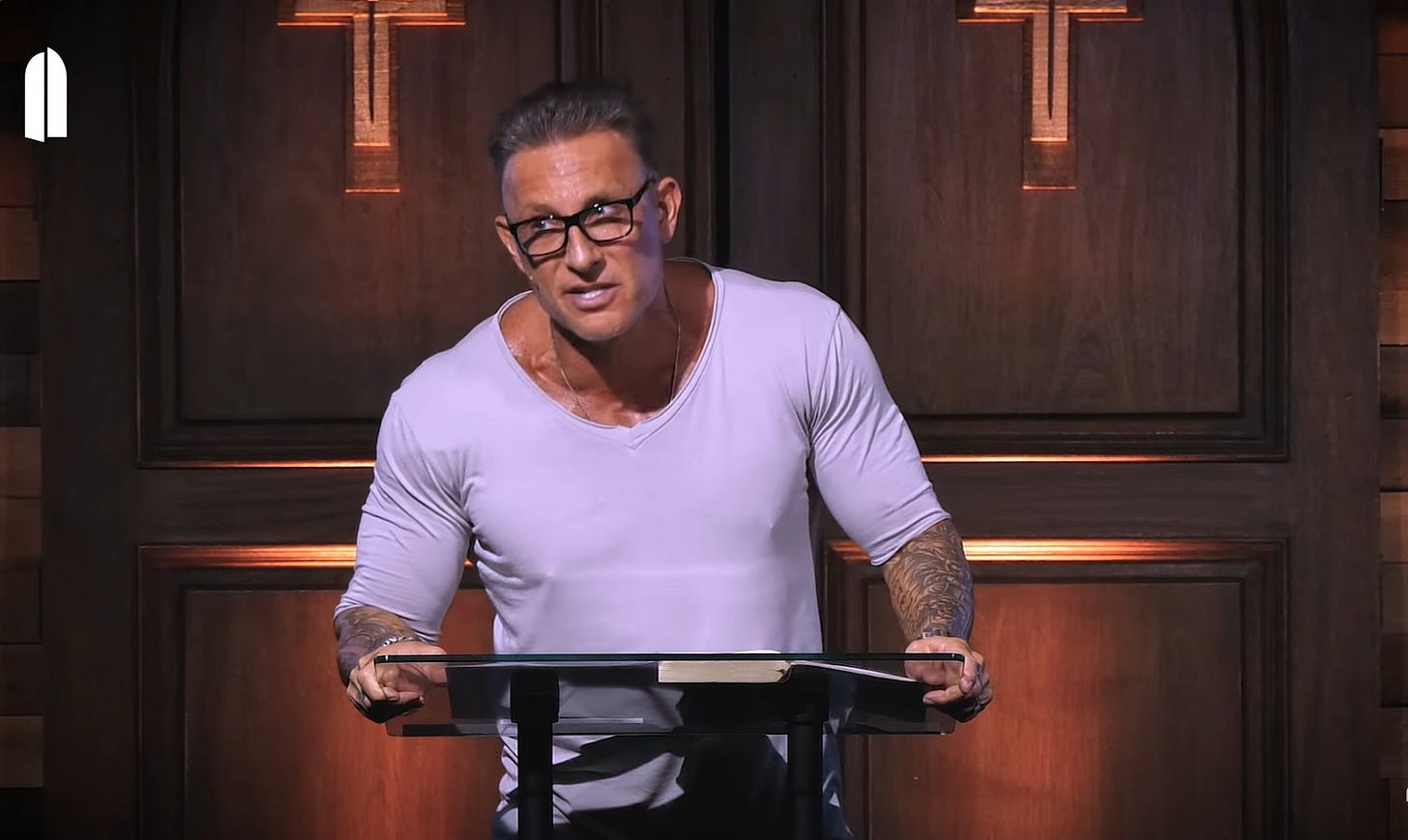The Great Evangelical Schism: Part 1, Sanctification
This post is part of a continuing essay series. The first installment can be read here:
The question of whether we are justified by our faith, by our works, or by a melding of the two is at the very heart of what separates Protestant, Catholic and Eastern Orthodox Christianity. Yet, regardless of where one lands in that theological battle, the orthodox expressions of all three traditions agree on one thing: After one professes a true faith in Jesus Christ, he will, over time, be gradually conformed to His image (Romans 8:29, 1 Corinthians 11:1) and live a life of increasing sanctification; he will become more holy, set apart as a facsimile of how God Himself is uniquely set apart. As a Baptist mentor of mine puts it, “Christians aren’t sinless, we just sin less.”
The “revivalist” tradition in American Christianity, and the weekly altar calls that characterize many of the churches that sprung from it, have a running joke of a man who weepingly walks to the front of the congregation every week to “rededicate his life to Jesus,” only to go right back to his modus operandi of drunken debauchery until next Sunday comes around. Despite this, something wholly destructive to the universally acknowledged doctrine of progressive sanctification has crept into American Christian discourse over the last half century. Unlike the three great traditions, the religion of Evangelicalism, in no small part due to its megachurch-driven obsession with attendee growth, pushes the Protestant doctrine of justification by faith alone to such a degree that it rarely, if ever, speaks of progressive sanctification.
In 2011, a controversy erupted in the nation’s largest conservative Presbyterian denomination, the Presbyterian Church in America, over this very topic. Some ministers had begun teaching a radical view of the Reformed doctrines of Total Depravity and Limited Atonement, giving such focus to justification that conservative ruling and teaching elders regarded it as contrary to progressive sanctification. The side that became known as the “Grace Boys” argued that God’s forgiveness is so boundless, His election so sure, that all the Christian need do in his walk is focus on that justification. Critics rightly claimed that this view resulted in the abandonment of progressive sanctification as a major aspect of the Christian life. As PCA pastor Terry Johnson rebuffed:
What about the countless exhortations to do and go and be (not just “realize” [what Christ has done]), but actually get off our duffs and mortify, even crucify the flesh, die to self, put on the new man, and be filled with Christ’s Spirit (Rom 6:12ff; 8:12ff; Gal 5:24; 2:20; Eph 4:22f; 5:18ff; etc.)? Certainly we are exhorted in light of who Christ is and what Christ has done (e.g. Rom 12ff follow Rom 1:1-11; Eph 3-6 follows Eph 1 & 2). However, the facts of redemption are not endlessly repeated (as though the problem were, oops, I forgot again! Please remind me. What has Jesus done for me?), or worse, used to nullify the threats, warnings, and exhortations of Scripture.
What Johnson and others, including noted Presbyterians such as Carl Trueman, Kevin DeYoung and R. Scott Clark, were butting up against with the “Grace Boys” was the religion of Evangelicalism creeping into the “high church,” and taking on a Reformed character. It was the proverbial weekly altar call attendee in TULIP form.
This is an easily recognizable pattern in Evangelical discourse. When the religion does speak of the moral obligations of believers, it usually chooses from a limited selection of sins that dovetail with hot-button political topics. It, more often than not, points a finger at the sins of the world that are found less in the church’s internal culture, and, rather than calling upon the congregation to mortify their flesh over their own sinful predilections, affirms their special status as those who are good-to-go as-is, just for knowing what Jesus did. The most celebrated preacher in all of Evangelicalism, the model nearly all of its pastors aspire to, Billy Graham, died with a reported net worth of $25 million, not counting what was in his ministry’s coffers. The result is that generations of his proteges will rarely speak of the sin of greed, though it is listed, right next to their favorite topic of sexual sin, as something that precludes a man from inheriting the kingdom (1 Corinthians 6:9-10). The story of the Good Samaritan, which is one many have emulated, becomes a tale of Christ’s work that we can never live up to. The story of the rich young ruler (Matthew 19:16–30) becomes an instruction on getting rid of that one thing that keeps you from fully focusing on Jesus’ work—wealth just happened to be this man’s blocker, like your blocker is watching too much television instead of reading your Bible. It never asks the attendee, “Is hoarding wealth itself a sin?” (James 5:1-7)

The result of this myopic view of the faith are Christians who rarely, if ever, ponder whether their work will stand the test (1 Corinthians 3:13-15), focusing so much on the free gift of God’s grace and not the expectations put upon those who accept it. This bleeds into how the average Evangelical speaks of himself and society at large, syncretizing political talking points into the faith and treating the non-Christian as an enemy to be conquered more than a potential sibling still separated from God, as they once were themselves (1 Corinthians 6:11). This will be the topic of the next installment.





I love that you just lay it out without a lot of side-taking. I've been on both sides of this discussion with my friend group and church as well. Seems to be larger than just the presbys
Brilliant analysis. Was unaware of the Grace Boys controversy.